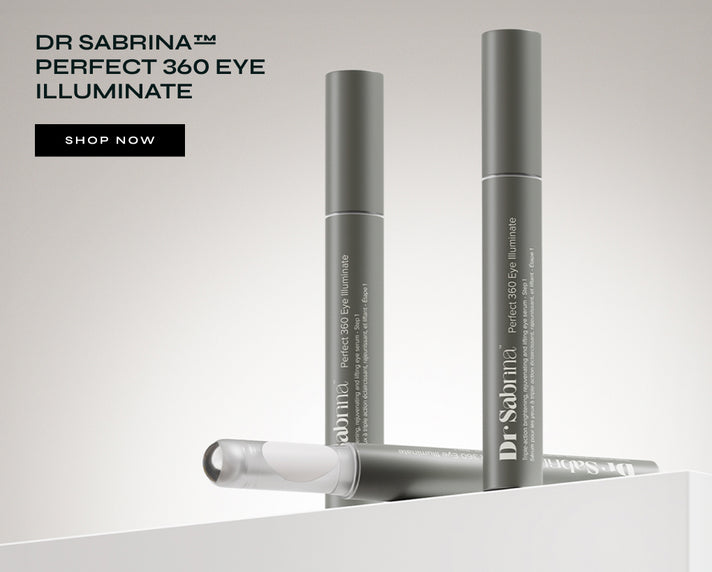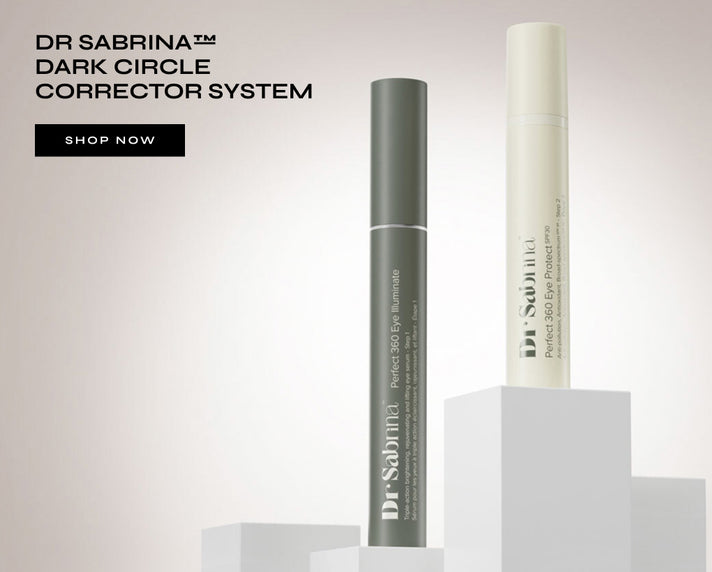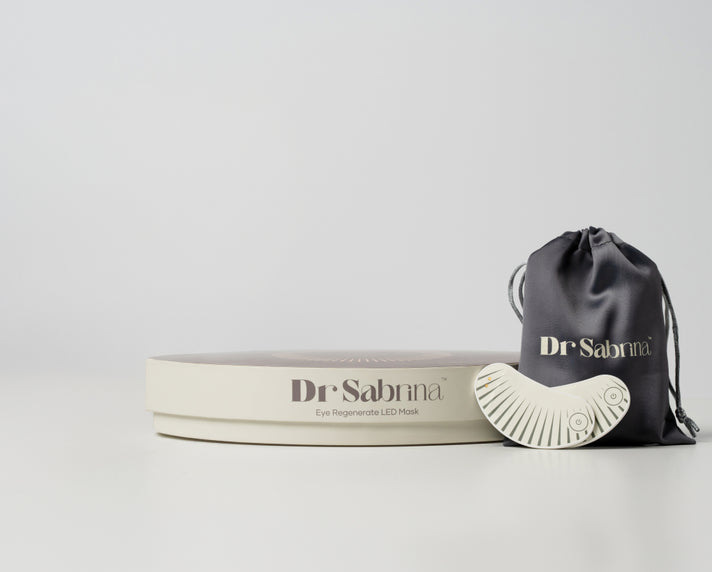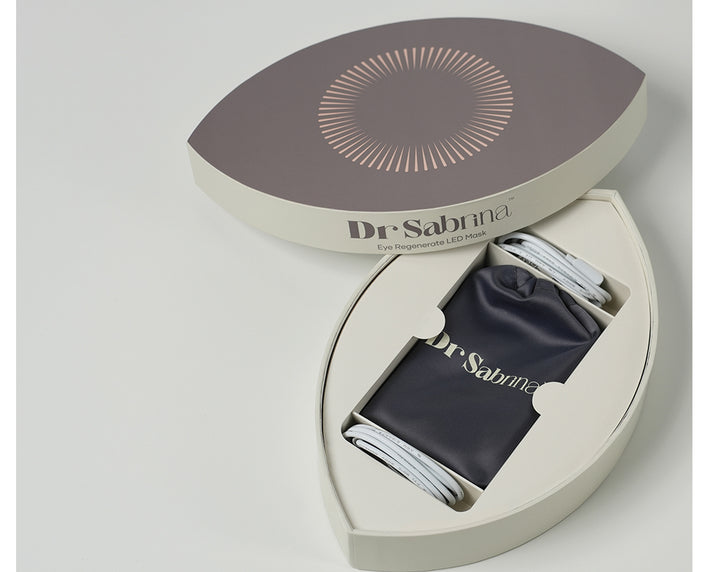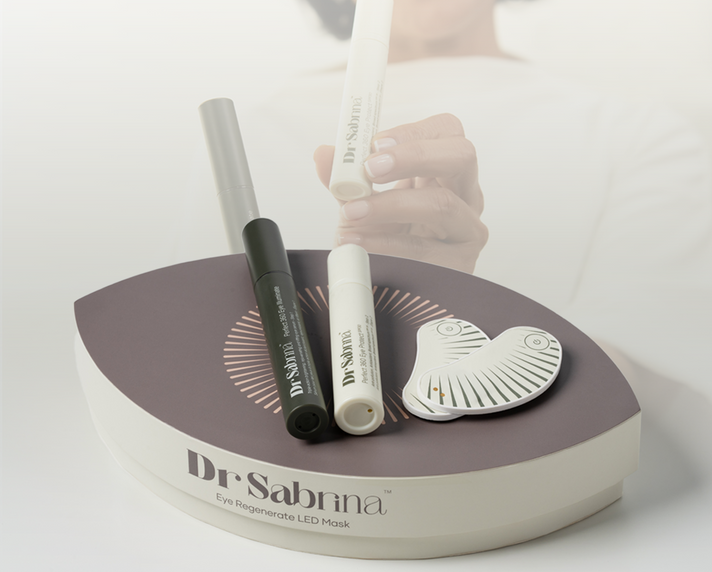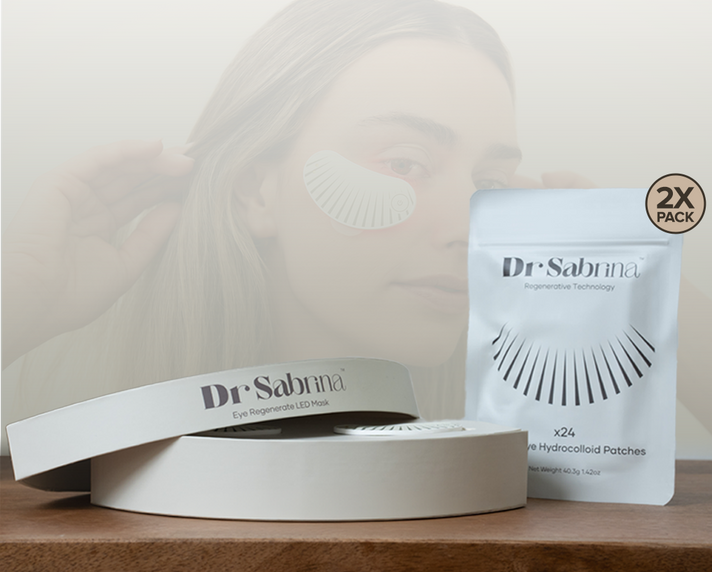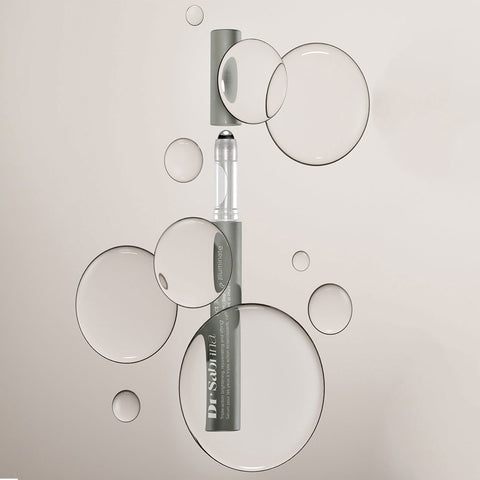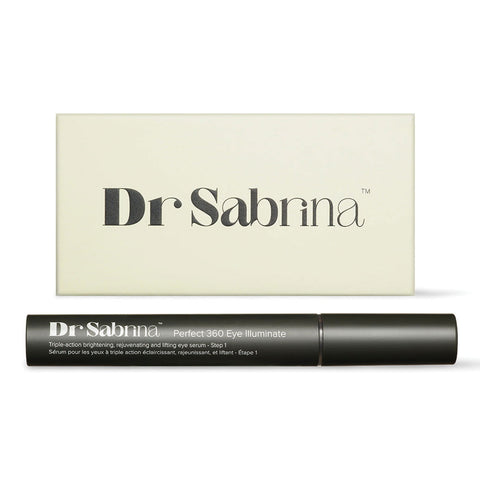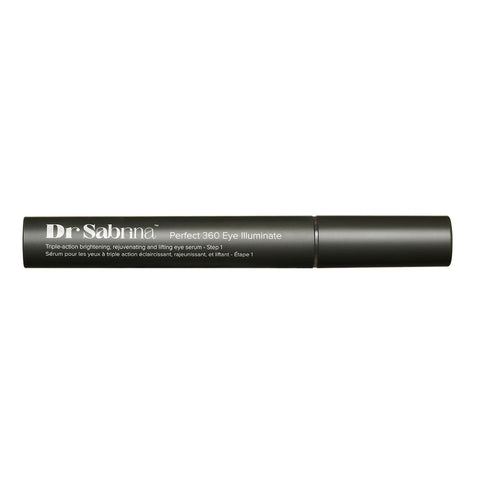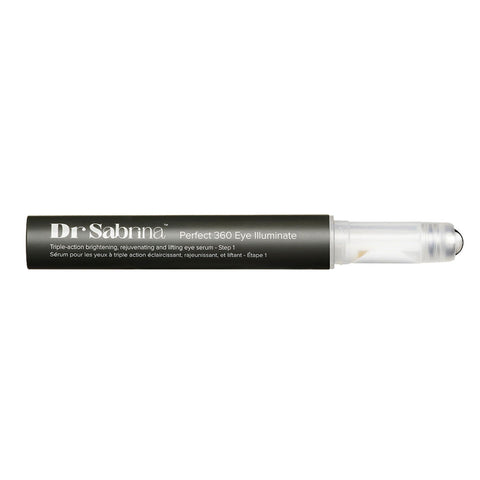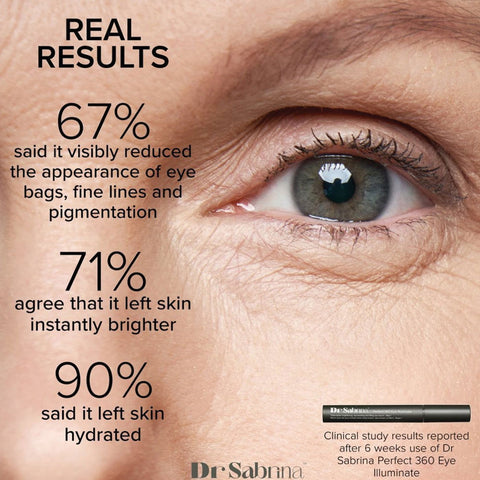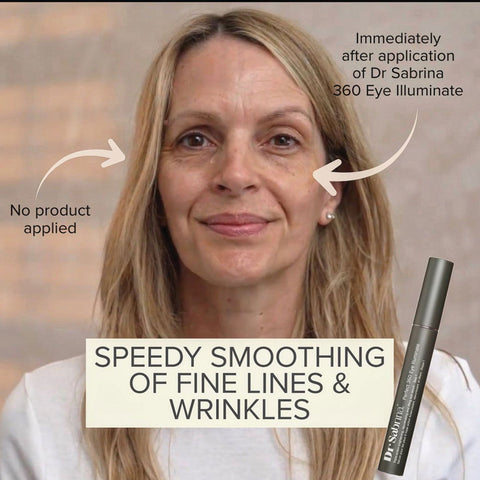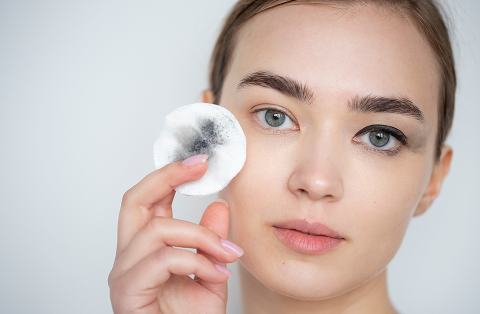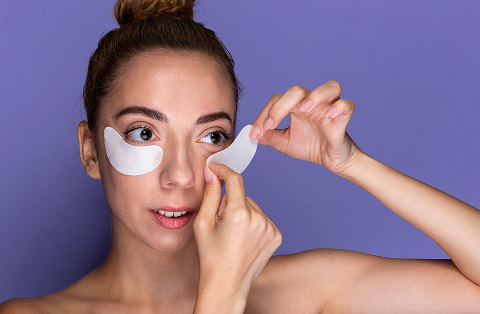Eye Serum
Types of Vitamin C in Skincare and Supplements: What Really Works?

From brightening serums to daily supplements, this powerhouse ingredient has become a staple for anyone looking to support both radiant skin and overall health. But with so many types of vitamin C available, each promising unique benefits, it can feel overwhelming trying to decide which one truly works best.
This in-depth guide breaks down everything you need to know, from topical forms in serums and creams to supplement types that nourish your skin and body from within. We’ll explore their differences, effectiveness, and ideal uses so you can confidently choose the best type of vitamin C for your needs.
Support Brighter, Healthier EyesWant smoother, brighter under-eyes that don’t just look awake but feel restored? Try the DR SABRINA™ PERFECT 360 EYE ILLUMINATE is designed to nourish, protect, and visibly reduce dark circles with consistent use. It’s perfectly suited for those who want clinical results with a comforting, luxurious feel. Try it Now! |
What Is Vitamin C and Why Does It Matter
Vitamin C isn’t just a trendy ingredient; it’s essential for your skin, immune system, and connective tissues. In skincare, it works as a potent antioxidant, protecting your skin from environmental stressors like UV rays and pollution. It also supports collagen synthesis, which keeps your skin firm and smooth, and helps fade dark spots by reducing melanin overproduction.
However, not all vitamin C products deliver the same results. The stability and absorption rate of vitamin C vary widely depending on how it’s formulated. Pure ascorbic acid, for example, is highly effective but unstable when exposed to light or air. That’s why modern skincare often uses more stable vitamin C derivatives.
It’s also worth noting that topical vitamin C (applied to skin) targets surface-level concerns like brightening and spot correction. In contrast, oral vitamin C supports the body’s internal functions and general health.
Suppose you’re wondering when to use vitamin C serum. In that case, most experts recommend incorporating it into your morning routine right before sunscreen to protect your skin from daily oxidative damage and boost radiance throughout the day.
Types of Vitamin C in Skincare (Topical Forms)
Skincare chemists have developed several types of vitamin C skincare formulations that range from potent pure forms to gentle derivatives for sensitive skin. Let’s look at some of the most common ones:
1. L-Ascorbic Acid (Pure Vitamin C)
Often regarded as the best type of vitamin C for skin, L-Ascorbic Acid is the purest form available. It delivers fast results, improving radiance, evening out tone, and boosting collagen production. However, it’s unstable and can oxidise quickly, meaning the formulation matters just as much as the ingredient itself.
Ideal concentration: 10–20% for visible results. Pairing with Vitamin E and Ferulic Acid increases its stability and effectiveness.
2. Magnesium Ascorbyl Phosphate (MAP)
A gentle, water-soluble derivative that’s great for sensitive or acne-prone skin. It still delivers brightening benefits and helps improve barrier function with less irritation. MAP is more stable than L-ascorbic acid and works well in lotions or creams.
3. Sodium Ascorbyl Phosphate (SAP)
This derivative is known for its anti-acne properties. SAP helps reduce breakouts while promoting collagen synthesis and fading hyperpigmentation. It converts to ascorbic acid upon absorption, offering results without harshness.
4. Ascorbyl Glucoside (AA2G)
A stable, water-soluble form ideal for daily use. It’s often found in drugstore serums labelled for “glow” or “brightening.” It gradually converts to pure vitamin C within the skin, making it great for long-term tone improvement.
5. Tetrahexyldecyl Ascorbate (THD Ascorbate)
A newer, oil-soluble vitamin C form that penetrates deeper into the skin. THD Ascorbate supports collagen production and elasticity, and it’s remarkably stable, making it ideal for dry or mature skin types.
6. Ethyl Ascorbic Acid and Ascorbyl Palmitate
Both are modern stabilised versions of vitamin C. Ethyl Ascorbic Acid blends well with other antioxidants. At the same time, ascorbyl palmitate is a lipid-soluble form used in creams and oils, offering a moisturising boost in addition to brightening benefits.
To understand how these forms affect the skin’s texture and tone, you should know what vitamin C does for your skin. It works by neutralising free radicals, supporting collagen formation, and preventing pigment production, all of which contribute to a glowing and youthful appearance.
Types of Vitamin C Supplements
Beyond skincare, internal consumption plays a major role in maintaining overall health. Here’s how different forms of vitamin C supplements compare:
1. Ascorbic Acid (L-Ascorbic Acid) vitamin
The most common and cost-effective forms are tablets and powders. It’s highly bioavailable but can cause stomach upset in higher doses.
2. Sodium Ascorbate / Calcium Ascorbate (Buffered Vitamin C)
"Buffered" forms that combine vitamin C with mineral salts like sodium or calcium to make them less acidic. Ideal for those with sensitive stomachs.
3. Mineral Ascorbates (Magnesium, Potassium, Zinc Ascorbate)
These combine Vitamin C with beneficial minerals. They offer similar absorption rates to ascorbic acid but deliver additional nutritional benefits.
4. Ester-C (Calcium Ascorbate + Vitamin C Metabolites)
Ester-C contains ascorbate metabolites that may aid better retention in the body. It’s gentler on digestion and lasts longer in circulation.
5. Liposomal Vitamin C
The best form of vitamin C supplement for maximum absorption. It’s encased in tiny fat molecules (liposomes), allowing it to bypass normal absorption barriers and deliver more vitamin C to your cells. This form is ideal for those with absorption issues or those seeking high therapeutic doses.
Best Type of Vitamin C for Skin
Finding the best type of vitamin C for skin depends on your skin type and goals:
-
For visible results, L-Ascorbic Acid remains the most effective at delivering fast improvements in brightness and firmness.
-
For sensitive or acne-prone skin: MAP or SAP are gentler alternatives that still provide antioxidant and anti-inflammatory benefits.
-
For dry or mature skin: THD Ascorbate offers deeper nourishment, hydration, and support for collagen-rich elasticity.
A concentration of 10–20% vitamin C is generally ideal for most people. Pairing with synergistic ingredients like Vitamin E and Ferulic Acid can amplify antioxidant protection and extend stability.
If you’re also addressing concerns like puffiness or pigmentation under your eyes, pairing oral vitamin C with a targeted under-eye serum can help amplify results for smoother, firmer skin around the delicate eye area.
How to Choose the Right Vitamin C
Choosing the right vitamin C comes down to your skin type, tolerance, and packaging preference. Always check that the product comes in dark, airtight bottles to prevent oxidation. For sensitive skin, derivatives such as MAP or SAP work beautifully, while L-Ascorbic Acid suits normal to oily skin. Look for added antioxidants or ferulic acid for extra stability.
Conclusion
Vitamin C is a true multitasker; it protects, brightens, and strengthens skin while supporting overall wellness from within. From the many types of vitamin C serum options to the best form of vitamin C supplement, your choice depends on your skin type, lifestyle, and goals.
Whether you’re looking to brighten your complexion or revive tired eyes, vitamin C delivers transformative results.
FAQs
1. Can Vitamin C be used daily?
Yes, most people can use vitamin C daily, but if you’re new to it, start with every other day to allow your skin to adjust.
2. Does Vitamin C make skin more sensitive to the sun?
No, in fact, it enhances your sunscreen’s protection by neutralising free radicals generated by sun exposure.
3. When should I apply vitamin C, morning or night?
Morning application is generally preferred to protect against daily environmental damage. But nightly use can also support regeneration.
4. How long does it take to see results from vitamin C?
Typically, consistent use for 4–8 weeks shows noticeable improvement in brightness and evenness.
5. Can I layer vitamin C with retinol?
Yes, but it’s best to alternate vitamin C in the morning and retinol at night to minimise irritation.
